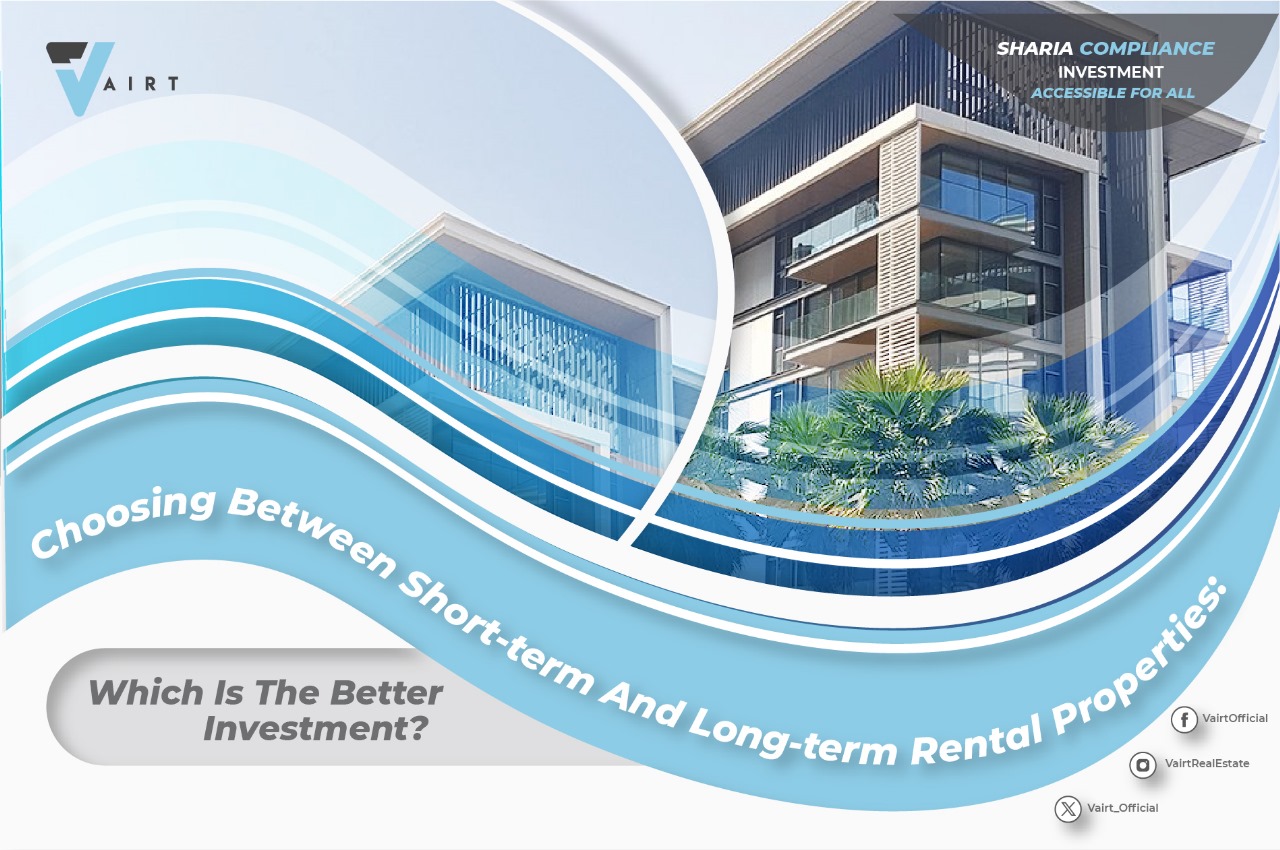
When it comes to real estate investment, choosing between short-term and long-term rental properties can be a significant decision. Both options offer unique benefits and downsides that should be carefully considered before investing. Let’s take a closer look at the characteristics of each rental strategy to determine which one might be the better fit for you.
Short-term rental properties refer to properties that are rented out for shorter durations, typically days or weeks. These properties are commonly used by vacationers, business travelers, and those looking for temporary accommodations. One of the key advantages of short-term rentals is the potential for higher rental income compared to long-term rentals. By charging a premium for shorter stays, investors can generate more revenue from their properties.
Moreover, short-term rentals offer flexibility for property owners. They can choose to rent out their properties only during peak seasons or high-demand periods, allowing them to use the property for personal use during other times. This flexibility can be appealing to investors who want to have the option of using the property themselves.
However, there are also downsides to short-term rentals. One major consideration is the increased level of management and maintenance required. With guests coming and going frequently, property owners need to ensure the property is always in top condition. This may involve regular cleaning, restocking supplies, and addressing any issues that arise during guests’ stays.
Additionally, short-term rental properties are subject to greater market volatility. Demand for vacation rentals can fluctuate based on factors such as seasonality, economic conditions, and even events happening in the area. Investors must be prepared for potential periods of lower occupancy and adjust their pricing strategies accordingly.
Long-term rental properties, on the other hand, refer to properties that are rented out for extended periods, typically months or years. These properties are commonly used by tenants who are looking for more permanent housing solutions. One of the key advantages of long-term rentals is the stability of rental income. Tenants sign lease agreements for longer durations, providing property owners with a steady stream of income.
Moreover, long-term rentals require less management and maintenance compared to short-term rentals. Once a tenant is in place, property owners can expect fewer turnovers and less frequent property upkeep. This can be appealing to investors who prefer a more passive approach to real estate investing.
However, long-term rentals also have their drawbacks. One major consideration is the potential for lower rental income compared to short-term rentals. Due to the longer lease durations, property owners may not be able to charge the same premium prices as they would for short-term stays.
Additionally, long-term rentals may limit the flexibility for property owners to use the property for personal use. Since tenants occupy the property for extended periods, owners may need to plan their own usage around the lease agreements.
In the ever-evolving landscape of real estate investment, Vairt offers an innovative solution that combines the best of both worlds – short-term and long-term rental properties. By investing in fractional ownership of vacation homes through Vairt, investors can access the benefits of short-term rentals without the associated management and maintenance headaches.
Investing in Vairt properties offers several advantages for property investors:
Deciding between short-term and long-term rental properties ultimately depends on your investment goals, risk tolerance, and preferences. Short-term vacation rentals can be lucrative in the right market, albeit with the need to manage property intricacies, while long-term rentals offer stability but may involve more legal considerations.
As with any investment, it’s essential to weigh the benefits and downsides of each rental strategy to align with your financial objectives. Consider factors such as income potential, flexibility, management requirements, and legal complexities before making a decision.
Real estate investing can be a complex endeavor, and it’s essential to make informed decisions.
Vairt presents an exclusive chance to participate in fractional ownership of meticulously chosen properties, enabling investors to diversify their portfolios while enjoying the benefits of real estate investment. Browse our available properties to begin your real estate investment journey today.
When it comes to choosing between short-term and long-term rental properties, there is no one-size-fits-all answer. Each option has its own set of pros and cons, and the decision ultimately depends on your investment goals, risk tolerance, and personal preferences.
However, Vairt presents a compelling alternative that combines the advantages of both short-term and long-term rentals. By investing in fractional ownership of vacation properties through Vairt, investors can enjoy the potential for higher rental income, hassle-free management, and the opportunity to diversify their investment portfolio.
Explore the world of real estate investing and choose between short-term and long-term rentals with confidence. Discover how Vairt's innovative approach to fractional ownership can enhance your investment portfolio, offering flexibility, stability, and optimized returns
Schedule a meetingExplore the world of real estate investing and choose between short-term and long-term rentals with confidence. Discover how Vairt's innovative approach to fractional ownership can enhance your investment portfolio, offering flexibility, stability, and optimized returns
Schedule a meeting
No Comments